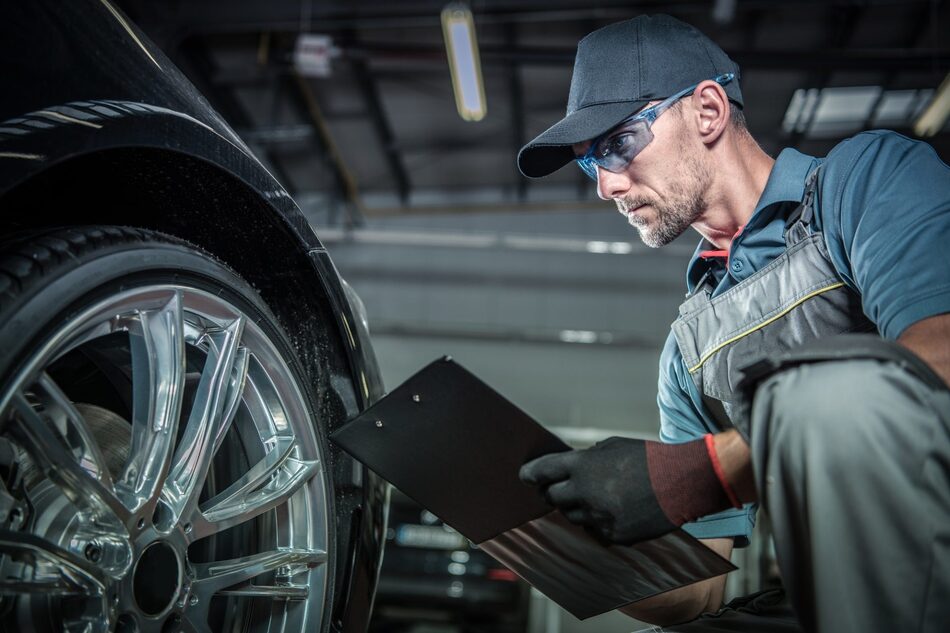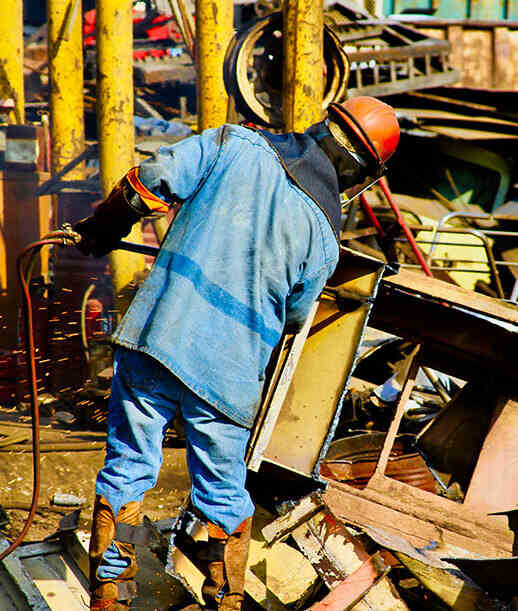WHAT JUNK CAR REMOVAL COMPANIES DO WITH A SCRAP CAR

What Junk Car Removal Companies Do with a Scrap Car? Most people often want a quick answer for their acknowledgment. In this article, we will tell you about the procedure that follow by car removal companies.
When you sell your old, damaged, or unwanted car to a junk car removal company, it doesn’t necessarily end up in a landfill. These companies provide a convenient and eco-friendly disposal solution while offering cash for your vehicle, helping you save money and space.
How Companies Categories Scrap Cars
They employ various approaches to handle scrap cars, depending on their condition and value. Some recycle, meticulously separating the car into metal, plastic, rubber, and glass. These materials are then processed and reused in the manufacturing of new products. Others choose to resell the car or its parts to buyers in need, sometimes after repair, refurbishment, or restoration, to make them more functional and appealing.

Sometimes, these companies may donate the car or its parts to non-profit organizations with specific missions or programs. For example, certain organizations might use donated cars for transportation, education, or emergency relief efforts. The options are diverse, and the goal is to minimize waste and maximize the utility of these old vehicles.
The steps involved in junk car removal
The junk car removal process involves several steps, which can vary depending on the company and your car’s condition. Here are some common steps you might encounter:
Contacting the Company:
-
- Contact the company and provide essential car details like make, model, year, mileage, and condition.
- Sharing photos or videos of your car can aid in their evaluation.
- The company will offer a quote and schedule a convenient pickup time.
Preparing the Car:
-
- Before pickup, prepare your car by removing personal items, documents, and valuables.
- Take off license plates and consider canceling registration and insurance.
- Some companies may request you to drain fluids (e.g., gas, oil, coolant, brake fluid) from the car.
- Ensure you have the car’s title and proof of ownership ready to hand over.
Selling the car:
-
- The last step involves selling your car to the company. They will dispatch a tow truck to your location to load your car onto it.
- The company will perform a final inspection to confirm the car’s condition and documentation.
- Payment will then be provided on the spot, either in cash, by check, or through electronic transfer.
- They’ll also furnish you with a receipt and a bill of sale for your records.
- Subsequently, they’ll transport your car to their facility, where it will undergo recycling, resale, or donation, depending on their processes.
The types of materials that are recycled from junk cars
Types of materials recycled from junk cars include:
Tires:
Tires are recycled extensively and used for various uses, such as fuel, asphalt, playground surfaces, and rubber products. In the United States, we generate about 220 million old tires annually, and 80% of them are recycled.
Windshield glass:
It is recyclable and can be turned into a range of products. The common products are fiberglass insulation, concrete blocks, glass bottles, and tiles. This recycling approach is gaining its height in multiple European countries like the United States and Canada.
Batteries:
Batteries are also incredibly recyclable parts of the junk cars. They contain materials like lead and plastic that can be salvaged and put to use once more. Notably, lead-acid batteries have an impressive recycling rate. In the USA, these batteries have a 99% recycling rate. They are the most recycled consumer products.
Steel and iron:
Steel and iron are the primary metals recycled from junk cars. After melting them, we can reuse them in new steel products such as construction materials, appliances, and vehicles. In that way, we can contribute to energy conservation and greenhouse gas reduction. Also, we can preserve the natural resource and habitat.
Wheels:
Wheels are recyclable components typically made of aluminium or steel. They can be separated and reused, with aluminium wheels being melted to create new aluminium products and steel wheels joining the scrap metal collection.
Radiators:
Radiators in cars are often constructed from copper or aluminium, which can be recovered and reused. Copper radiators are typically sold to copper refineries or smelters, while aluminium radiators are melted down to produce new aluminium items.
Transmissions:
Transmissions contain various metal parts that can be separated and repurposed. They can be sold to transmission rebuilders or scrap metal dealers for recycling.
Rubber hoses:
Rubber hoses are recyclable materials that can be shredded and repurposed for various applications, including rubber mulch, mats, asphalt additives, and fuel production.
Carpets:
Carpets found in cars are also recyclable. They can be processed into nylon fibres, which is valuable for creating new carpets, clothing, or plastic components.
The advantages of using a junk car removal service
Still have a question What Junk Car Removal Companies do with a Scrap Car? Using a junk car removal service offers several advantages, particularly when dealing with an old, damaged, or non-functional vehicle:
Clear valuable space on your property by removing the vehicle that occupies your garage, driveway, or yard.
Contribute to environmental preservation by recycling vehicle parts and safely disposing of hazardous materials, reducing the negative impact on the environment.
Save time and money by avoiding the hassle of repairing or selling the vehicle yourself. Junk car removal services provide a quick and effortless process, often towing the vehicle away within hours of your request.
Avoid potential legal and financial issues associated with unregistered or non-functioning vehicles. Junk car removal services can provide documentation to prove that you no longer own the vehicle and ensure its proper disposal.
FAQs
What is a scraped car?
A scraped car results from damage caused by contact with objects like curbs, speed bumps, or potholes, often leading to scratches, dents, or cracks on the car’s body, bumper, or undercarriage.
How do you fix a scrape on a car?
Repairing a car scrape involves assessing the damage’s extent and location. For minor scrapes, you can use scratch remover products with a microfiber cloth. Deeper or larger scrapes may require glazing putty and touch-up paint to match the original colour. Serious damage may need professional body shop assistance.
How do you remove light scratches from car paint?
For light scratches on car paint, Clean the area, apply scratch remover polish to a buffing pad or microfiber cloth, rub it over the scratch in circular motions until it vanishes, rinse off excess polish, and dry the area with a cloth.
Is scraping bad for a car?
Yes, scraping is detrimental to a car as it can harm crucial components, particularly those on the bottom or front. This can result in fluid leaks from the radiator, oil pan, transmission housing, or fuel tank. It may also damage the exhaust system, driveshaft, brake lines, or steering elements.
What happens when you scrape the front of your car?
Scraping the front of your car can damage the bumper, grille, headlights, or hood. These parts safeguard the car during frontal impacts and enhance its aerodynamics and aesthetics. Impairing these components can compromise safety and appearance.
Final Analysis
If you have a junk car you want to sell or remove, contact a reputable junk car removal company nearby. Compare offers and services online, considering your needs and preferences. Check reviews and ratings for reliability. Once you accept an offer, schedule a convenient pickup time and location. The company will tow your junk car for free and pay you cash on the spot, with no hidden fees or paperwork. Don’t let your junk car linger; contact us today to turn it into cash!
